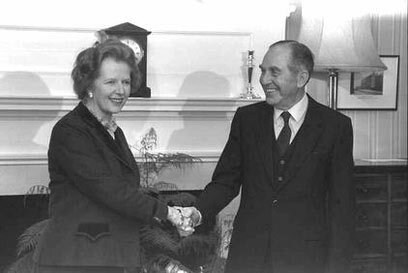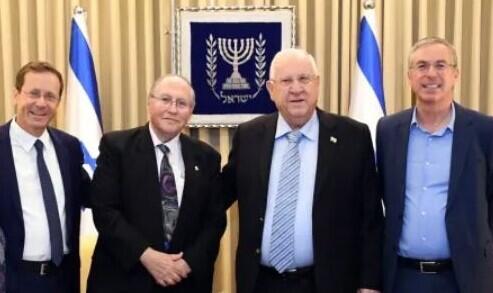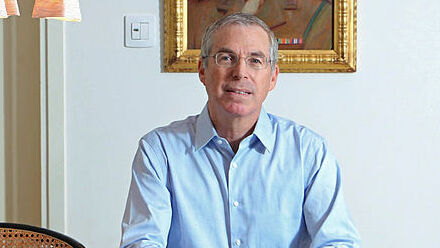Getting your Trinity Audio player ready...
Until last week, most knew Mike Herzog as the older brother of the 11th president of the State of Israel. But last week, the retired IDF general and senior military adviser was named as the nation's new ambassador to the United States.
Herzog is a consensus candidate for a government of left, right and centrist politicians, with more than enough qualifications to hold what is arguably Israel’s most important foreign diplomatic post.
Herzog was appointed as ambassador, according to a statement issued by Prime Minister Naftali Bennett’s office, “in light of his rich experience, over many years, in the security and diplomatic arenas, and his deep familiarity with the strategic issues facing the State of Israel, especially the Iranian nuclear issue.”
Foreign Minister Yair Lapid said Friday that Herzog is “exactly the right person to serve in this strategically important role. I look forward to working with him to further strengthen and deepen the Israel-U.S. relationship.”
Brig. Gen. (res.) Michael Herzog, 69, had a four-decade career in the IDF. During his time in the military, he served in a series of senior positions, including head of strategic planning at the Planning Directorate, and military secretary and chief-of-staff to four defense ministers: Ehud Barak, Amir Peretz, Shaul Mofaz and Benjamin Ben-Eliezer. He is a graduate of the prestigious National Defense College.
In recent years, he has served as an international fellow at the Washington Institute for Near East Policy and at the Jewish People Policy Institute.
3 View gallery


Former president Chaim Herzog meeting with then-British PM Margaret Thatcher in 1983
(Photo: GPO)
Herzog, whose father was Israel’s sixth president and whose grandfather was the country’s Ashkenazi chief rabbi from 1936 to 1959, has played an active role in many diplomatic negotiations under five prime ministers.
This includes most rounds of peace talks between Israel and the Palestinians, Jordanians and Syrians, and many rounds of talks hosted by the United States such as the Wye Plantation summit, Camp David summit, and Annapolis.
He was former prime minister Benjamin Netanyahu’s special envoy on the peace process from 2009 to 2010 and was a peace negotiator during secret talks with the Palestinians in 2013 and 2014.
Through his work with the Americans on achieving peace with Israel’s neighbors, Herzog has formed relationships U.S. President Joe Biden, Secretary of State Antony Blinken, and National Security Adviser Jake Sullivan, as well as White House Coordinator for the Middle East and North Africa Brett McGurk, and Deputy Secretary of State Wendy Sherman.
3 View gallery


L-R: President Isaac Herzog, former Supreme Court justice Elyakim Rubinstein, former president Reuven Rivlin and incoming ambassador to the U.S. Mike Herzog
(Photo: GPO)
But it is Herzog’s experience on Iran and its nuclear program that is perhaps most significant at this time. Bennett himself highlighted this in his praise of his ambassadorial appointment, citing his "in-depth knowledge of the strategic issues facing Israel, especially the Iranian nuclear program."
Israel views Iran and its nuclear program as a threat to the state and the region and is working to dissuade the U.S. from reviving the nuclear pact signed between the Islamic Republic and the world powers in 2015.
Reprinted with permission from The Media Line


